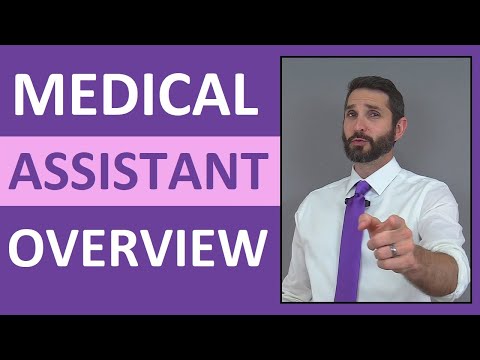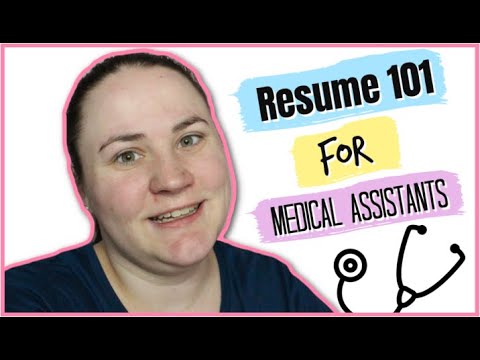Medical Assisted Treatment for Alcoholism
Contents
- Introduction to Medical assisted treatment for alcoholism
- The benefits of medical assisted treatment
- The risks of medical assisted treatment
- The different types of medical assisted treatment
- The effectiveness of medical assisted treatment
- The side effects of medical assisted treatment
- The cost of medical assisted treatment
- The pros and cons of medical assisted treatment
- The future of medical assisted treatment
- FAQs about medical assisted treatment
Medical Assisted Treatment (MAT) for alcoholism is a combination of medications and behavioral therapies that can help people struggling with addiction. If you or someone you know is struggling with alcoholism, MAT can be a helpful treatment option.
Checkout this video:
Introduction to Medical assisted treatment for alcoholism
Alcoholism is a serious medical condition that requires treatment. While there are many different ways to treat alcoholism, one of the most effective methods is through medical assisted treatment. Medical assisted treatment for alcoholism usually involves the use of medication to help control cravings and withdrawal symptoms. This type of treatment can be very effective in helping people to recover from alcoholism and get their lives back on track.
If you or someone you know is struggling with alcoholism, it is important to seek professional help. Alcoholism is a serious medical condition that requires treatment in order to recover. There are many different types of treatment available, but medical assisted treatment can be an effective option for many people. If you think this type of treatment might be right for you, talk to your doctor or a professional in the addiction recovery field.
The benefits of medical assisted treatment
Medical assisted treatment (MAT) is a safe and effective way to treat alcoholism. MAT can help people with alcohol dependence reduce their drinking, avoid relapse, and remain in recovery.
There are several types of medication that can be used as part of MAT, including naltrexone, acamprosate, and disulfiram. These medications work by reducing cravings for alcohol or making it less pleasurable to drink.
MAT is usually combined with counseling and support groups to provide a comprehensive treatment plan. This combination of medication and behavioral therapy can help people with alcoholism achieve long-term recovery.
The risks of medical assisted treatment
Medical assisted treatment (MAT) is a relatively new approach to treating alcoholism and other substance abuse disorders. It involves the use of medication, usually in combination with therapy, to help people overcome their addiction.
MAT has been shown to be effective in helping people recover from alcoholism, but there are some risks associated with this type of treatment. The most common side effects of MAT are nausea and vomiting, which can be serious if not treated properly.MAT can also cause liver damage, so it is important to be monitored closely by a doctor if you choose to undergo this type of treatment.
Another risk of MAT is that it can lead to dependency on the medication. This means that if you stop taking the medication, you may experience withdrawal symptoms such as shaking, sweating, and headaches. For this reason, it is important to work with a doctor who can help you slowly wean off the medication once you have recovered from your addiction.
The different types of medical assisted treatment
There are a few different types of medical assisted treatment for alcoholism. The most common is Antabuse, which is a medication that makes it very unpleasant to drink alcohol. This can be helpful for people who are trying to stay sober, but it is not a cure for alcoholism.
Another type of medical assisted treatment is called Vivitrol. This is an injection that helps to reduce cravings for alcohol. It can be helpful for people who are trying to stay sober, but it is not a cure for alcoholism.
Finally, there is a type of medical assisted treatment called acamprosate. This medication helps to reduce anxiety and depression, which can be triggers for drinking. It can be helpful for people who are trying to stay sober, but it is not a cure for alcoholism.
The effectiveness of medical assisted treatment
Medical assisted treatment is considered to be the most effective form of treatment for alcoholism, according to the National Institute on Alcohol Abuse and Alcoholism (NIAAA). This type of treatment usually involves the use of medication to help reduce withdrawal symptoms and cravings, as well as behavioral therapy to help patients changing their drinking behaviors.
While there are different medications that can be used for medical assisted treatment, the most commonly used drugs are opioids, such as buprenorphine and methadone. These medications work by binding to the same brain receptors that are affected by alcohol, which reduces the effects of withdrawal and cravings.
Behavioral therapies, such as cognitive-behavioral therapy (CBT) or motivational enhancement therapy (MET), are often used in conjunction with medication to help patients make changes in their Drinking behaviors. These therapies can teach patients how to better cope with triggers and stressors, how to avoid risky situations, and how To develop new coping mechanisms.
The side effects of medical assisted treatment
Medical assisted treatment is a much debated topic when it comes to alcoholism. The main concern with this type of treatment is the potential for abuse and addiction. Although there are some risks associated with medical assisted treatment, there are also many benefits that make it a viable option for those suffering from alcoholism.
The most common type of medical assisted treatment is Antabuse, which is an medication that deters people from drinking by causing them to feel sick if they do drink alcohol. Antabuse has been found to be most successful when used in conjunction with other forms of treatment, such as therapy and support groups.
The cost of medical assisted treatment
The cost of medical assisted treatment for alcoholism can be significant, but the long-term benefits may outweigh the initial investment. Inpatient treatment programs may cost upwards of $30,000, while outpatient programs may cost less than $10,000. While the exact cost will depend on the type and length of treatment, as well as the individual’s insurance coverage, budgeting for medical assisted treatment is an important part of the recovery process.
The pros and cons of medical assisted treatment
Medical assisted treatment (MAT) is a controversial topic when it comes to treating alcoholism. There are pros and cons to using this type of treatment, and it’s important to be aware of both before making a decision about whether or not to use it.
MAT involves the use of medication to help alleviate withdrawal symptoms and cravings, making it easier for people to abstain from alcohol. This can be an effective treatment for some people, but there are also some potential risks and downsides to using medication to treat alcoholism.
Some of the potential benefits of MAT include:
-Reduced risk of relapse: By helping to reduce withdrawal symptoms and cravings, MAT can help people stay abstinent from alcohol for longer periods of time.
-Improved physical health MAT can help improve the physical health of people with alcoholism by helping to reduce the negative effects of alcohol on the body.
-Improved mental health MAT can also help improve the mental health of people with alcoholism by helping to reduce anxiety and depression.
However, there are also some potential risks associated with medical assisted treatment, including:
-Dependence on medication: Some people who use MAT can become reliant on the medication in order to function normally. This can lead to problems if they stop taking the medication or if they try to quit without medical supervision.
-Side effects: Some medications used in MAT can cause side effects such as drowsiness, nausea, and headaches. These side effects can sometimes be severe enough that they make it difficult for people to continue taking the medication.
-Risk of overuse: People who use MAT may be at risk of using more alcohol than they would without the medication, due to the fact that it reduces withdrawal symptoms and cravings. This can lead to problems such as liver damage and other health complications.
The future of medical assisted treatment
Medical assisted treatment (MAT) for alcoholism is a new and promising area of research. While there is still much to learn, the future of medical assisted treatment looks promising.
There are many different types of medical assisted treatment for alcoholism, but one of the most promising is the use of medication. Medication can help to reduce cravings and withdrawal symptoms, making it easier for people to stay sober. Medication Assisted Treatment is often combined with therapy and other support services, making it even more effective.
While medical assisted treatment for alcoholism is still in its early stages, the future looks promising. With more research, we will continue to learn more about how to effectively treat alcoholism with medication and other interventions.
FAQs about medical assisted treatment
Q: What is medical assisted treatment for alcoholism?
A: Medical assisted treatment for alcoholism is a form of treatment that uses medication to help individuals manage their addiction to alcohol.
Q: How does medical assisted treatment work?
A: Medical assisted treatment works by helping to reduce cravings for alcohol and by making it easier for individuals to abstain from drinking.
Q: What are the benefits of medical assisted treatment?
A: The benefits of medical assisted treatment include improved mental and physical health, increased chances of long-term sobriety, and improved social functioning.
Q: What are the risks of medical assisted treatment?
A: The risks of medical assisted treatment include the potential for abuse or dependence on the medication, as well as the potential for negative side effects.







